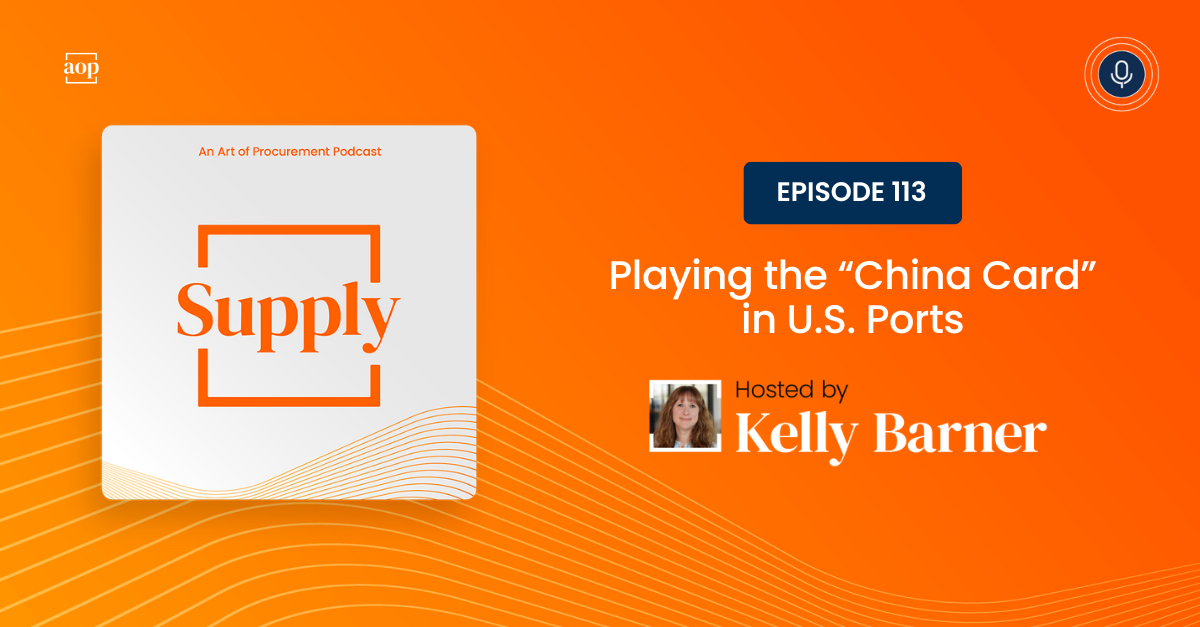“You can’t unscramble eggs.” – J.P. Morgan
U.S. Steel was formed in 1901 when J.P. Morgan financed the merger of Andrew Carnegie’s Federal Steel and National Steel. The resulting company is now the second largest steel company in the United States and the eighth largest in the world.
The company has survived industrialization, two world wars, and the modern era of global supply chains. Now however, their future is anything but certain, and there are multiple factors converging to bring them to their knees.
In this week’s Dial P for Procurement, I look at the complicated set of pressures bearing down on U.S. Steel.
Unsolicited Takeover Bids
On August 13th, U.S. Steel rejected an unsolicited $7.3 Billion takeover bid from competitor Cleveland-Cliffs, but it did not come as a total surprise. Expectations of a takeover at U.S. Steel had been growing following several quarters of reduced profitability as a result of high raw material and energy costs. Cleveland-Cliffs was simply the first to act.
If that deal had gone through, it would have significantly altered the American steel market. Cleveland-Cliffs would have become the largest steelmaker in the country and would have possessed a series of additional advantages:
- They would have been the ONLY steel company in the U.S. to use blast furnaces,
- The ONLY domestic supplier of tinplate for making food cans, and
- The ONLY domestic supplier of iron ore.
All of those “only’s” would have made an antitrust review almost a guarantee, either preventing the acquisition altogether or requiring the divestment of some of their joint holdings. Automakers and other large steel consumers would likely have raised concerns about dwindling competition as well, given that four companies currently dominate the market. Reducing that to three would reduce competition even further.
Organized Labor Interests
One day after Cleveland-Cliffs’ offer was rejected, Esmark offered to buy U.S. Steel for $7.8 Billion – but the opportunity was short lived.
Just two weeks later, Esmark withdrew its bid out of respect for the United Steelworkers union (USW). The union favors the Cleveland-Cliffs deal, and has been very vocal about it. Esmark is a non-union company, but they have cooperated with the USW in past acquisitions.
What is most interesting is that the USW isn’t just backing the Cleveland-Cliffs deal, they are transferring their claimed right to buy the company to them.
The union claims that they can veto any offer they don’t like, but U.S. Steel disagrees with that interpretation of the contract. If they can’t come to an agreement, the situation is likely to end up in court or an arbitration process… and neither of those things move fast.
In truth, the union contract isn’t compounding U.S. Steel’s troubles, it is additional evidence of their waning influence in recent years. The labor contract that they are now struggling with was just signed in December of 2022 and will remain in place through December of 2026.
According to the Wall Street Journal, “U.S. Steel holds the legal high ground in the dispute with the union,” but as a wise friend once told me, everyone is entitled to all the justice they can afford.
Pressure both Foreign and Domestic
With Esmark bowing out, and Cleveland Cliffs’ offer being deemed unreasonable, the next concern is that a non-U.S. company might try to buy U.S. Steel. Then the deal would have national security significance.
Politicians from both sides of the aisle (including Republican Senator J.D. Vance from Ohio and Democratic Representative Ro Khanna from California) have advocated holding out for a domestic buyer. Whether they are intending to put their finger on the scale for Cleveland-Cliffs or not, that is the net effect of their recommendation.
China currently dominates global steel production, followed by India, Japan, and the U.S. Of the approximately 2 billion tons of steel produced annually worldwide, over half comes from China, according to the World Steel Association.
For context: China’s Baowu Group produced 120 million metric tons of steel in 2021, while Cleveland-Cliffs and U.S. Steel produced 33 metric tons – combined. With China’s construction sector dragging down domestic demand, there will likely soon be plenty of low cost steel to ship around the world, raising pricing pressure on U.S. producers.
U.S. Steel is being squeezed on one side by Cleveland Cliffs and on the other by the union. Because they ran themselves into a position of market weakness, they are being batted about – certainly not the dignified position you’d want to see for such an old and influential company.
It makes me wonder what J.P. Morgan would think if he were able to observe the situation U.S. Steel has gotten themselves into. With few good options currently available, it serves as proof that you truly can’t unscramble an egg.







